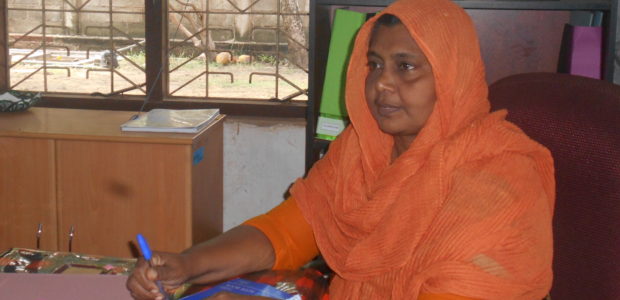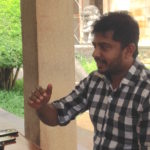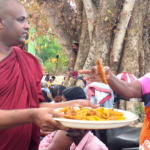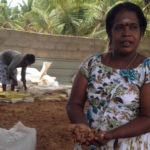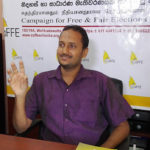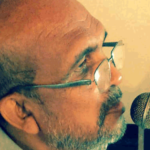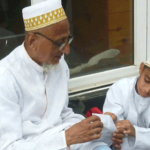After Easter Sunday
A Journey into Reconciliation
This is a brief interview with Ms. Juwairiya, Director at Muslim Women Development Trust and Counsellor, Empowerment of Women and Families on the much needed reconciliation efforts that should take place after the recent Easter Sunday Attacks.
‘We have been able to exist in Sri Lanka thus far because of the small manifestations of reconciliation found here. If not, the country would have experienced a massive catastrophe following the Easter Sunday attacks. We have the necessity and objective to identify those who think about reconciliation, mobilize them together and bring change.’ Says Juwairiya who shared her sentiments after the Easter Sunday attacks with the Catamaran.
———————————————–
CATAMARAN: Presently, the reconciliation efforts in Sri Lanka are in a fragile condition. What are your thoughts?
Ms. Juwairiya: Our usual taxi driver is Sinhalese and he takes us wherever we want to go. After the Easter Sunday attacks, when we wanted to go to Kottaramulla, I said to him, ‘It is very frightening to go out in this present situation.’ He said, ‘The people who live here are innocent, poor and humble and you are always helping us. We will not permit anything to happen to you.’ It is because of reconciliation efforts that he was able to speak like this. But not only this, on our way, when the Police stopped us to do a search, he would not remain silent and immediately came forward, saying, ‘These people help the poor. Why are you are checking them? They render their services to the poor at Courts of Law and Police.’ It is true that our taxi driver is not an educated man but it is within people like him that you are bound to find an abundance of humanity.
CATAMARAN: But tension and adverse effects are continuous…….
Ms. Juwairiya: So far the problem was against the Tamils and Muslims. Before, it was a problem between the Tamils and Sinhalese. I have not heard of any difference of opinion or problem, whether small or big, between Muslims and Christians. Such a relationship came to be at odds after the 21st of April. But, in the Puttalam area, the relationship between Tamils, Christians and Muslims is good to a certain extent. I do not know where the racism between Buddhist and Muslim people cropped up. It has caused terrible damage. These disturbances are attempts to create an earthquake with 21st April as an excuse. It could be felt as the resultant effect of a long term scar in the midst of them.
CATAMARAN: What do you mean when you say long term scar?
Ms. Juwairiya: The incidents at Digana, Mawenella and many other similar incidents of the past are indicators of the unbearable temperament amongst the Sinhalese and Tamils, created by the economic prosperity, population growth and educational development of the Muslims and the activities of the Muslim ministers. These are the long term scars I have mentioned.
CATAMARAN: The Islamic people have maintained cordial relationships with other races in the past. There are allegations of late that they now live distinguishing themselves differently. What do you think about this?
Ms. Juwairiya: Yes. At the beginning the relationship was good. All of a sudden the Muslim people started wearing black dresses like purdah and abaya and covering their faces. This took place within ten or fifteen years. They have established this as a religio-ethnic identity but not in an effort to segregate themselves. But other communities have not accepted this. But, with this as a reason, suppression cannot be permitted.
CATAMARAN: It is argued that in a time of hostility, it is prohibited to prevent people from going about covering their faces fully, in order to hide their identity. Why should the entire community be disturbed about this?
Ms. Juwairiya: It is not so. After this notification, ordinary people with black dresses and face veils were treated as untouchables and in offices, people were ordered to remove the head covers. This is not justifiable and cannot be accepted. Suddenly within about fifteen to twenty years when the Muslims cover their faces, a curtain falls between the Muslims and people of other religions. Why do they cover their faces like this? With this question they alienate themselves. There may be a fear amongst them that some racial elements have brought foreign cultures, for example the Saudi Arabian cultures and those of the Arabian countries here. I think so. There are people who fear that terrorists may also disguise themselves in this dress and bring something hidden in it. One thing has to be accepted. Muslims were involved in the massacre. On account of this, their fear is reasonable. Even then, to have the people of the civil society experience the same pain and distress at every occasion is an unjustified action.
CATAMARAN: What do you think about the dress that came in within fifteen or twenty years?
Ms. Juwairiya: The choice of dress is the basic right of everyone. But, we live in a multicultural country, so why do we choose to wear this black dress? Why do we cover our faces? You can say it is religion or culture. But the Muslim could have thought about it before wearing it. They could have thought a little about whether it suits our country’s culture the climate. Now we are unable to do away with it. Many are unable to appear in public without that dress. Many are confined to their houses. Many are seeking refuge in countries where they cover their faces. They are not going to school. They resign from their jobs. They refuse to go to the madrasas. Some men insist that it is not necessary for the women to go out without the face veil and they may remain inside the house. Whether to wear this or not is an individual’s wish. But these have now emerged as a serious problem. The women are affected by this. That is a matter of concern now.
CATAMARAN: Facing all these challenges, as a social activist, what do you think will help Sri Lanka move towards coexistence?
Ms. Juwairiya: First, there should be a discussion on this matter with the two affected communities who have lawful and reasonable ideas. These discussions can take place as individuals or as groups. Once six months have passed, an affected Muslim person should go and talk to a Christian who is similarly affected and likewise the Sinhalese should talk to the affected Muslims. After that, people selected from all these groups should sit together at one place and have discussions. Compiling of the pain and distress of the losses have to be done in an orderly manner by a counsellor to express the extent of their pain and distress experienced by both sides. If the counsellors are from the three races, first they should have discussions with one another prior to working with affected people. We have already executed this in uniting the relatives of the missing persons. It was successful. Media should also support this. When these discussions are conducted through the media, grievances can be reduced. Both of our sides are affected by this. We have pain. It is a similar pain. Beyond this we can bring many changes by publicising the necessity for us to unite through media.
